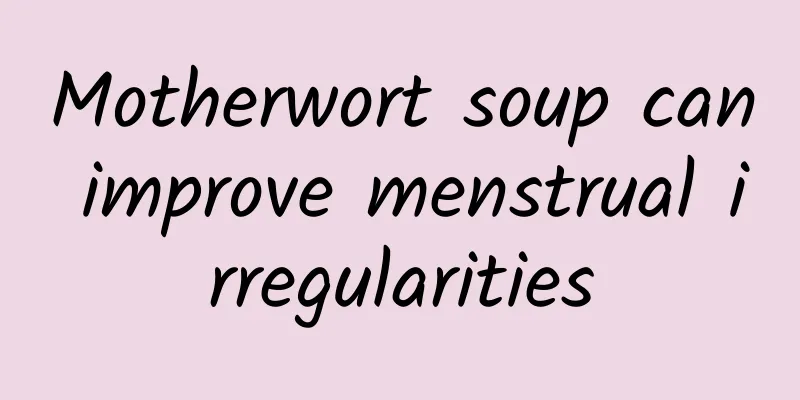What health care should you pay attention to after menopause

|
Many women in life are familiar with menopause. Many people in life will experience menopause, which makes many women very scared. They should pay attention to some care plans in life to effectively restore health. So, how should women care when they experience menopause? Let's take a look at the expert analysis. 1. General nursing measures Simple malnutrition requires nutrition to maintain a standard weight; overweight and obese women in menopause need to eat a low-calorie diet, but the diet must be rich in vitamins and minerals. In addition, patients should be encouraged to exercise more, do appropriate physical labor regularly, strengthen their physical fitness, and ensure sleep. Psychological care measures It plays an important role in the treatment of menopause. For example, psychogenic menopause should be treated with psychotherapy, and patients with anorexia nervosa should receive psychotherapy. Nurses should establish a good nurse-patient relationship with patients, encourage them to express their feelings, and ask questions about health problems, treatment, and prognosis. Provide patients with diagnosis and treatment information, help them clarify some concepts, and relieve patients' psychological pressure of worrying about the disease and its impact. 3. Health Guidance Measures The main thing is to encourage patients to interact with their peers and relatives, participate in social activities within their ability, keep a good mood, and treat the disease correctly. Patients should be informed that there are many causes of menopause and the diagnosis time is long. They should patiently accept relevant examinations according to regulations to obtain correct results and achieve satisfactory treatment effects. Doing a good job of family planning and minimizing uterine surgery can effectively prevent menopause. Menopause is closely related to the seven emotions and internal injuries, so it is advisable to regulate emotions. Properly handle the delivery process to prevent heavy bleeding during and after delivery. Once heavy bleeding occurs, blood transfusion should be given in time to prevent Sheehan's syndrome and amenorrhea. Menstruation is controlled by endocrine hormones of the hypothalamus-pituitary-ovarian axis. Any problem in this axis will affect the normal menstruation. The function of this axis is affected by many external factors, such as environmental changes, seasonal changes, mood changes, etc., which can obviously cause abnormal menstruation and even menopause. |
<<: How to prevent and care during menopause
>>: What are the health care issues for menopausal women?
Recommend
Here are some common abortion surgeries for you
At present, more and more women are getting pregn...
High-fat and high-sugar foods are as hard to quit as drug addictions and can make you depressed
Why are cheese, donuts, gratin, and pizza so irre...
Does a thin endometrium of 2mm mean menopause?
Does endometrium thinning to 2mm mean menopause? ...
What are the precautions after winter abortion?
Winter is a season for nourishing the body, espec...
After menopause, women may have 4 unspeakable problems. Doctors say: It's normal, don't be embarrassed
Menopause, like a "small turning point"...
Why do uterine fibroids occur in early pregnancy? Causes of uterine fibroids in early pregnancy
Why do uterine fibroids occur in early pregnancy?...
Do you know what the symptoms of cervical hypertrophy are?
How much do you know about the symptoms of cervic...
What are the characteristics of laparoscopic surgery for ovarian cysts?
Laparoscopic surgery has a good effect on the tre...
What are the treatments for ovarian cysts and abdominal pain?
What are the treatments for ovarian cysts and abd...
Eating probiotics can help you lose weight easily! Red wine and olive oil are available
If you want to lose weight, do you have to be too...
Is it normal for a 16 year old to have ovulation bleeding?
Ovulation bleeding at the age of 16 is also a nor...
What are the common methods of treating ovarian cysts?
Ovarian cysts, I believe all female friends are f...
Seniors get rid of tuna belly and control waistline by walking
The older you get, the more you get fatter. Since...
Can cervical erosion be inherited?
Cervical erosion is not a genetic disease, but is...
Why do I have my period twice a month?
Why do we have menstruation twice a month? The re...









